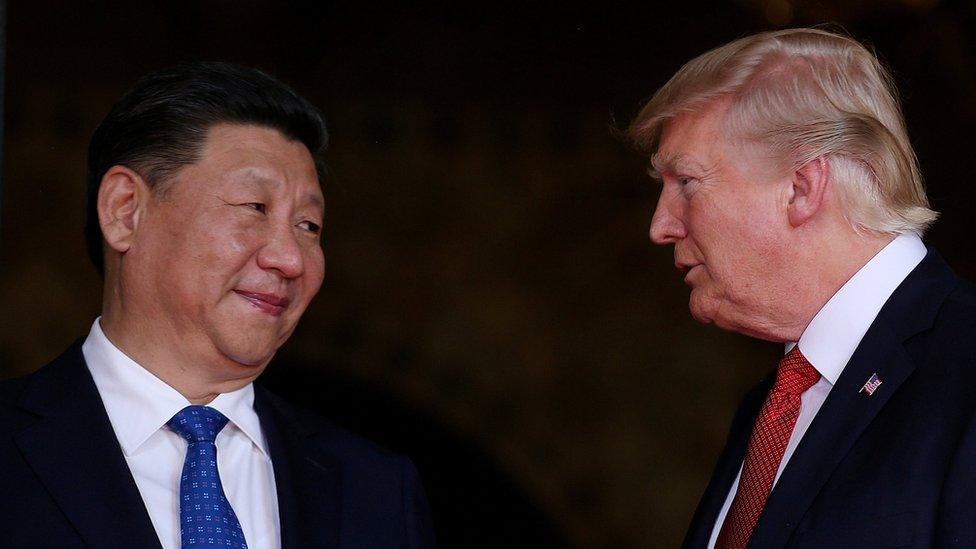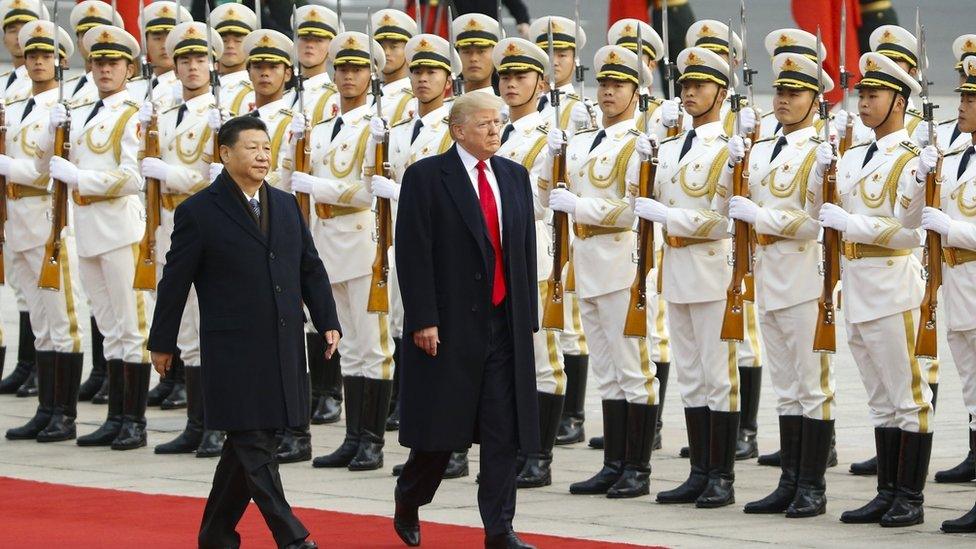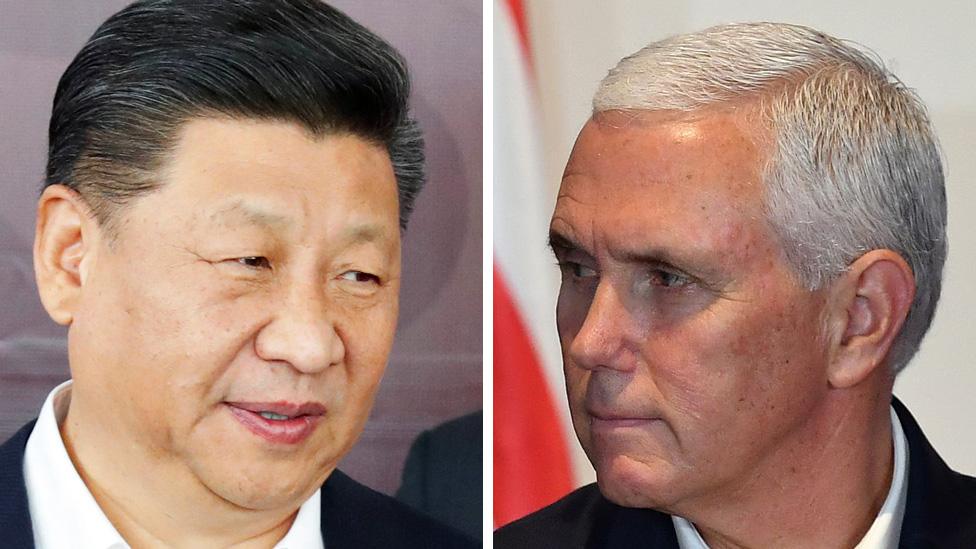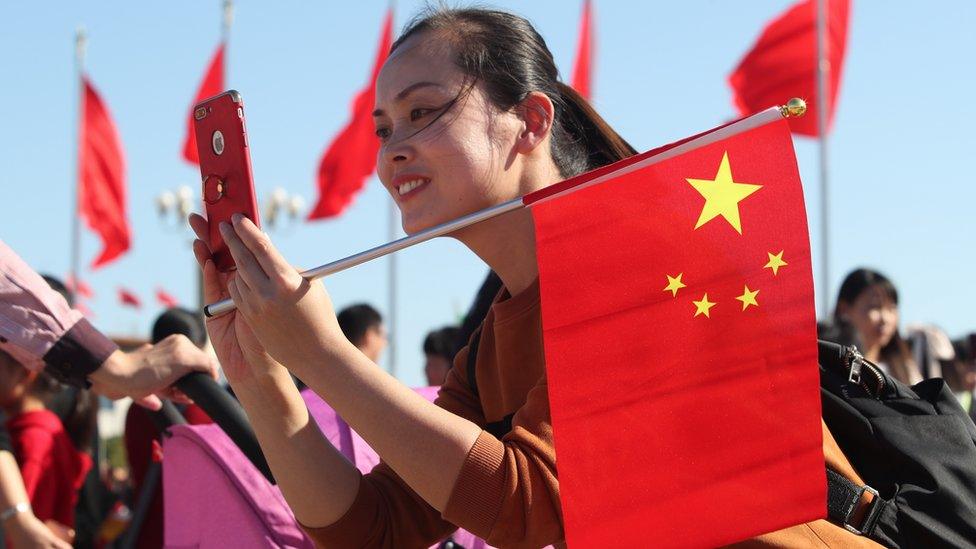G20 summit: Why Trump and Xi won't make a deal
- Published

When the world's two most powerful leaders meet this week their bitter trade battle will set the ground for the pair to make up, or break up.
Donald Trump and Xi Jinping have had a rocky relationship. Last year, President Trump seemed to be the one doing the courting and Beijing had the upper hand. So much so that at that time, President Trump didn't even blame China for the trade surplus - saying it was the fault of previous American administrations instead.
In return, China said it would lower market entry barriers to some sectors, and investors around the world breathed a sigh of relief.
But through 2018, their relationship deteriorated rapidly. Tit-for-tat tariffs traded via tweets escalated a trade war that threatens to make us all poorer for it.
The trade battle will be in sharp focus when they meet on the sidelines of the G20 summit in Argentina.
Here are three reasons why a deal between the two seems unlikely:
China wants control
The US has legitimate concerns over market access in China, writes The Brookings Institute, external. But tariffs aren't always the problem.
In fact, Beijing has been bringing these down and in some sectors they are lower than other emerging markets.
Where China does need to change is in how the government limits the access foreign firms have to its consumers.
There are restrictions on direct investment in sectors ranging from autos, to financial services, and telecommunications. That makes it hard for foreign companies to invest in China, and for them to sell their goods to Chinese customers without doing a joint venture of some sort.
That's where the tech transfer issues and intellectual property concerns come into play. China will need to give up its joint venture regulations to appease the US, and it's hard to see it will do that because the thing that Beijing craves most is control.
If Beijing allows foreign companies to dictate terms it would fundamentally change the way China operates. In an era where President Xi has exerted more control over the economy, not less, that's unlikely.
No room to save face
President Trump hasn't left China much room to save face. He has consistently said he will slap more tariffs on Beijing if it doesn't play ball, even when it risks hurting his own constituents.
At every major international gathering, Washington has reminded the global community that Beijing is at fault in this relationship.
Speaking at the Apec summit recently, US Vice President Mike Pence insulted the Belt and Road Initiative - a major piece of China's foreign and economic policy - saying it would lead to nations drowning in debt.
He also said the US offered far more than "a constricting belt or one way road." The US Secretary of State Mike Pompeo said Chinese deals are often too good to be true.
And even on the eve of the upcoming G20 meeting, Larry Kudlow, director of the US National Economic Council, has pointed out that no deal will be possible unless "issues of intellectual property theft, forced technology transfers and tariff and non tariff barriers" are solved.
That's pretty much everything that has helped China's economy get to where it is today. It won't want to walk away from a deal with nothing in return.
More than a trade war
The US-China relationship is the most important strategic, economic and political relationship of our time. For decades, the partnership has worked.
But in recent years - and in particular since President Xi has taken over - China has been asserting itself on the international stage. At times this was because of the gaping vacuum a preoccupied US, busy with the global financial crisis and its own domestic problems, left in Asia.

China stepped in to play the role of financial saviour, and there is a sense of rightful resentment in some quarters in Beijing that it doesn't get the recognition it deserves.
But then China also launched the Belt and Road Initiative - initially intended as a way to facilitate trade and investment, but increasingly seen as China's economic colonialism and coming of age. China's actions in the South China Sea also has many in Washington worried about what its true aims in the region are.
So this trade war between Washington and Beijing is not simply about trade. It is a way for the Trump administration to try to keep China in its place, a fear that many in Beijing have, which is why it has become so difficult for the two sides to strike a deal.
And even while President Trump says he's got great personal chemistry with President Xi, his administration says that China has taken advantage of US generosity and that has to change.
So it's been one step forward, two steps back. In any negotiation both sides need to walk away feeling like they've gained something, otherwise a transaction won't take place.
Which is why so much is riding on the world's most important date, and why it's unlikely it will end with anything but a cosmetic kiss on the cheek, and perhaps even with a frosty and bitter goodbye.
- Published18 November 2018

- Published22 October 2018
- Published26 October 2018
